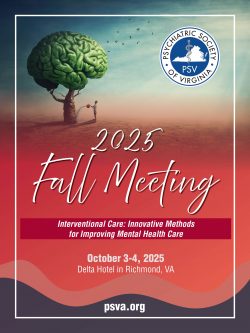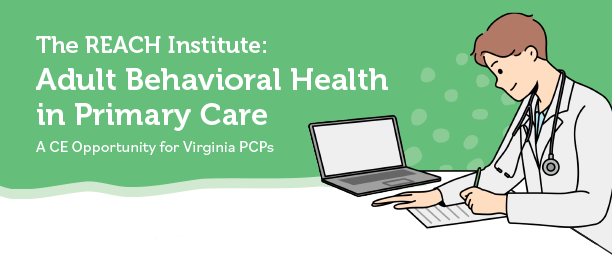By Trevor Moncure
Commonwealth Strategy Group
Elections
Democrat Abigail Spanberger and Republican Winsome Earle-Sears both secured their party’s nominations unopposed after the conclusion of the 2025 primary elections. Spanberger, a moderate who flipped a competitive Richmond-area congressional seat in 2018, is focused on building broad support, despite occasional tensions with her party’s progressive wing. Earle-Sears, Virginia’s current lieutenant governor, has trailed in fundraising and has rarely campaigned alongside the full GOP statewide ticket. If elected, she would become the first Black woman governor in U.S. history.
State Senator Ghazala Hashmi won a tight six-way race with 27.39% of the 481,227 votes cast, finishing less than a point ahead of former Richmond Mayor Levar Stoney (26.64%) and just over a point ahead of State Senator Aaron Rouse (26.34%). Although the margin falls within Virginia’s recount threshold, Stoney conceded and endorsed her. If elected in November, she would be the first South Asian and Muslim to hold statewide office in the Commonwealth. Hashmi, who ran with strong progressive and clean-energy support, will face Republican nominee John Reid in the general election.
Former Delegate Jay Jones narrowly defeated Henrico Commonwealth’s Attorney Shannon Taylor by approximately 2 points, earning 51.01% of the vote. Jones, who previously worked for the D.C. Attorney General’s Office and ran for AG in 2021, entered the race early and received strong institutional support, along with major outside spending from Clean Virginia. He will challenge incumbent Republican Attorney General Jason Miyares in November.
Democrats are contesting all 100 House districts this fall, including in Republican strongholds, while Republicans are contesting about 70. Only three incumbents — Delores McQuinn (D-Henrico), Patrick Hope (D-Arlington) and Terry Austin (R-Botetourt) — faced primary opponents, and all won by comfortable margins. While no State Senate seats are on the ballot this year, a Hashmi win could trigger a special election, potentially affecting Democrats’ slim 21-19 majority in the chamber.
Prescriptive Authority for Clinical Psychologists
The workgroup convened by Senator Barbara Favola’s (D) SB 752, whose purpose was to study the training, education, and experience of clinical psychologists and determine under what conditions it would be appropriate for them to be granted prescriptive authority, met twice in the Summer and concluded its work on August 15th. The workgroup, organized jointly between the Board of Medicine and Board of Psychology and consisting of physicians, psychologists, and pharmacists, will report its findings to both Health committees in the General Assembly by November 1st.
While we will not know exactly what is included in that report until November, we do know that the report will reflect that there was no consensus among members of the workgroup on whether clinical psychologists should be given prescriptive authority. Regardless of what is written, we anticipate that there will be legislation introduced in 2026 that would grant clinical psychologists prescriptive authority. The Psychiatric Society of Virginia and Washington Psychiatric Society, in alignment with a growing coalition of physician communities, including the Medical Society of Virginia, remain and will continue to remain in opposition to this initiative.
Prescribing Medications to Children Workgroup
An additional workgroup met this summer to discuss best practice guidelines for prescribing medications to children and adolescents. This workgroup replaced a burdensome law passed in 2024 that would have required physicians currently prescribing medications to children to provide parents with a detailed medication management plan and to be available to the parent 24 hours each day and on weekends in case of emergencies.
The workgroup determined that these practices were already the standard of care in Virginia, and thus no further legislation was recommended.
PSYCH-MD PAC
PSYCH-MD PAC, the Psychiatric Society of Virginia’s greatest advocacy tool, is currently operating a budget of $14,015.95. As we enter the Summer and Fall, our political contributions to friendly legislators will begin to increase, draining our current budget. It is imperative that we maintain a sizeable budget so that we can continue to gain access to and support legislators friendly to the physician community.
There are currently no medical physicians serving as elected officials, meaning that now more than ever, the General Assembly relies on the expertise and training of medical professionals to advise them on important policy decisions within the healthcare system. If we do not maintain access to legislators, it is unfortunately likely that they will turn their attention to more unqualified voices of advocacy, jeopardizing the standard and quality of healthcare in Virginia.
Please make a donation to PSYCH-MD PAC using this link.
Alternatively, you can mail a check to PSYCH-MD PAC, 118 N. 8th Street, Richmond, VA 23219 with your donation including your name, address, and place of business (as required by state law). The Executive Boards of both the Psychiatric Society of Virginia and the Washington Psychiatric Society have pledged 100% participation rate amongst board members. This is a crucial year for PAC support – please consider a sizeable donation and give a voice to your profession.
Contact Trevor Moncure ([email protected]) for questions or more information.





